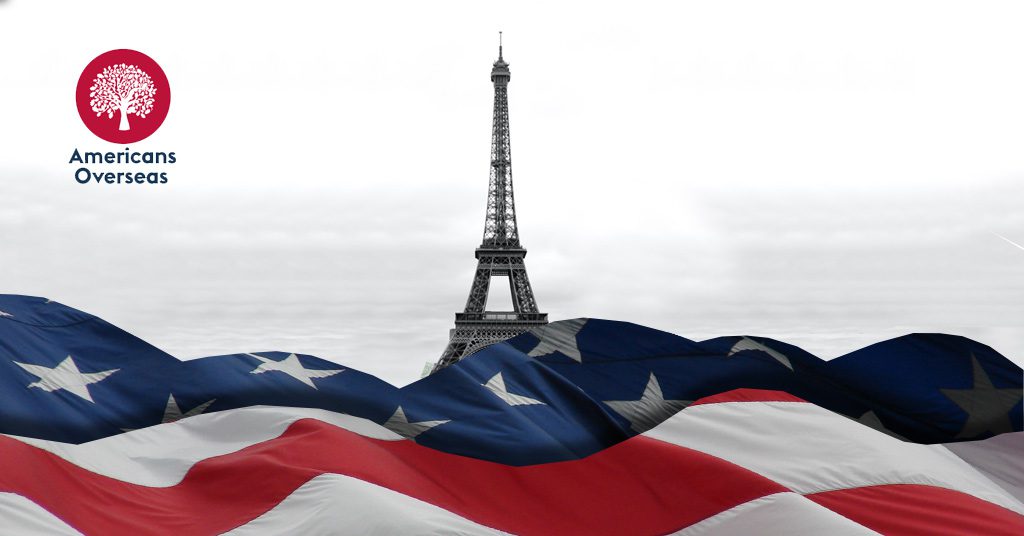
Accidental Americans in France Face US tax problems

If you’re an Accidental American in France, you may be facing some serious US tax problems.
There are an estimated 40,000 Accidental Americans in France – people who have never lived in the US but who are considered American citizens (U.S.persons) because they were born there or have a parent who was born there.
Many Accidental Americans are unaware of their status until they try to get a passport, open a bank account, or apply for a mortgage. Then they discover that, as Americans, they are subject to US tax laws.
The US is one of the few countries that taxes its citizens on their worldwide income, regardless of where they live. This can come as a shock to Accidental Americans, who may have to pay taxes on money they have never even seen.
There are steps that Accidental Americans can take to minimize their tax liability, but it can be a complicated and time-consuming process. In the meantime, they often live in limbo, neither fully French nor fully American.
Accidental Americans and FATCA
In recent years, the U.S. government has been cracking down on these so-called “accidental Americans.” These are people who were born in the United States but have lived most of their lives elsewhere. They may not even have a U.S. passport. But because they were born in the United States, they are considered citizens and are subject to U.S. taxes.
The problem is, that many of them don’t even know it.
The U.S. government has been trying to track down these so-called accidental Americans and make them pay up. But it’s not easy. The government has estimated that there are about 9 million accidental Americans living around the world.
In 2010, the U.S. government passed a law called the Foreign Account Tax Compliance Act (FATCA). This law requires banks and other financial institutions to report any accounts held by U.S. citizens. This has made it a lot easier for the government to track down accidental Americans.
Applied in France since 2014, FATCA requires French banks to disclose to the US tax authorities personal data, assets exceeding $50,000 (approximately €40,000), and transactions of all their US clients. French banks are threatened with a hefty 30 percent tax on all their American transfers if they do not give all this financial data.
Many Accidental Americans receive a FATCA letter from their bank requiring them to produce a Social Security number or an Individual Taxpayer Identification Number since they are U.S. citizens. Banks may discontinue offering them financial services and/or products if they are unable to obtain an SSN or TIN.
Accidental Americans and US tax return
Accidental Americans in France are not aware of their status as U.S. citizens until they try to get a passport or apply for a bank account. It can be a shock to find out that you owe taxes to a country you’ve never even visited.
The good news is that there are ways to reduce your tax liability as an accidental American. You can claim the foreign-earned income exclusion, which allows you to exclude up to $102,100 of your income from U.S. taxes.
You can also claim the foreign tax credit, which allows you to offset your U.S. tax liability by the amount of taxes you’ve paid to your home country. If you’re an accidental American, it’s important to stay compliant with your U.S. tax obligations. But there are ways to minimize your tax liability. Talk to Americans Overseas to see if you qualify for any exclusions or credits.
How can Accidental Americans become tax-compliant?
Accidental Americans in France can become tax-compliant by filing U.S. tax returns and paying any outstanding taxes owed. They may also be required to file FBARs (Foreign Bank and Financial Accounts Reports) and FATCA (Foreign Account Tax Compliance Act) forms.
Fortunately, a pathway toward compliance can help you avoid late filing, payment, and information return penalties. The IRS announced the availability of the Streamlined Filing Compliance Procedures in 2012 for those living abroad.
Filing U.S. tax returns can be complicated, so it’s important to seek the help of qualified tax professionals.
Americans Overseas can help Accidental Americans in France
We, the founders of Americans Overseas, were born in the Netherlands and obtained our American nationality through our (American) mother. When we heard about this for the first time around 2013, we were in total disbelief (it can’t be true!), anger (how can they do this?), fear (am I going to get fined or pick up other problems?), and panic (what should I do?).
It is (unfortunately) true that there is an additional American tax levy. But there’s no information from the local government, and when approached, the consulate referred us to the IRS, and the IRS was impenetrable.
That’s why we started this initiative to help people from all over the world by providing proper information to avoid unnecessary panic and offering help free of obligation and free of charge. If needed, we have a network of affordable professionals (accountants) who can help you with your tax obligations.
If you have more questions about Accidental Americans and their US tax obligation you can contact us at Americans Overseas.
Frequently asked questions
Understanding the US tax system, the obligations, and all the additional terms can be difficult. Especially if one lives outside of America. Is your question not answered? Contact us.
-
Who is required to file taxes in the US?
U.S. citizens and resident aliens who live abroad are generally required to file a federal income tax return and pay taxes on their worldwide income.
Read more... about Who is required to file taxes in the US? -
Do US citizens living abroad still have to file taxes in the US?
Yes, US citizens are required to file taxes on their worldwide income, regardless of where they are living.
Read more... about Do US citizens living abroad still have to file taxes in the US? -
How can I cash my US check?
Received an American check? You can cash your check in the following ways: cash the check at your own bank, transfer to another person (endorsement), cash checks using an online service or cash the check by another bank.
Read more... about How can I cash my US check? -
Are there any special tax forms required for US citizens living abroad?
US citizens living abroad may be required to file Form 2555 and/or Form 1116 to claim the foreign-earned income exclusion.
Read more... about Are there any special tax forms required for US citizens living abroad? -
What is FBAR filing?
FBAR (Foreign Bank Account Report) filing is the requirement for certain U.S. individuals and entities to report their foreign financial accounts to the Financial Crimes Enforcement Network (FinCEN) of the U.S. Department of Treasury. The FBAR filing requirement applies to U.S. persons who have a financial interest in, or signature authority over, one or more foreign financial accounts if the aggregate value of those accounts exceeds $10,000 at any time during the calendar year.
Read more... about What is FBAR filing?





